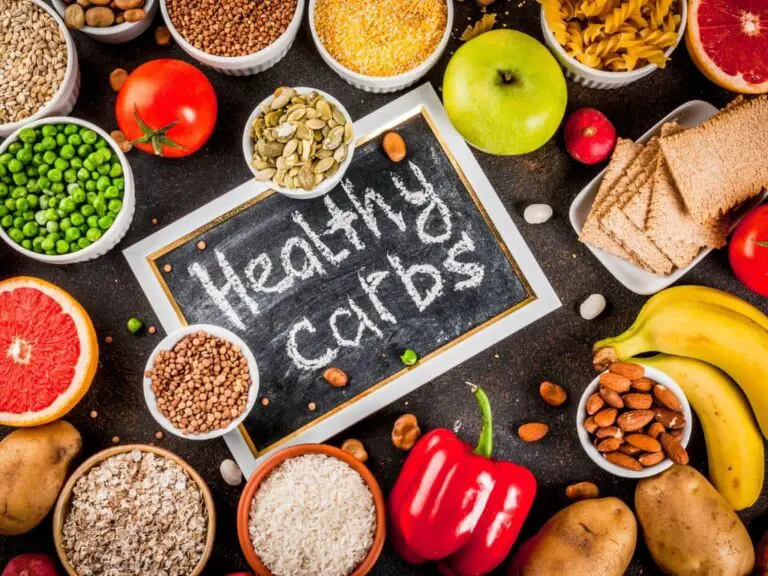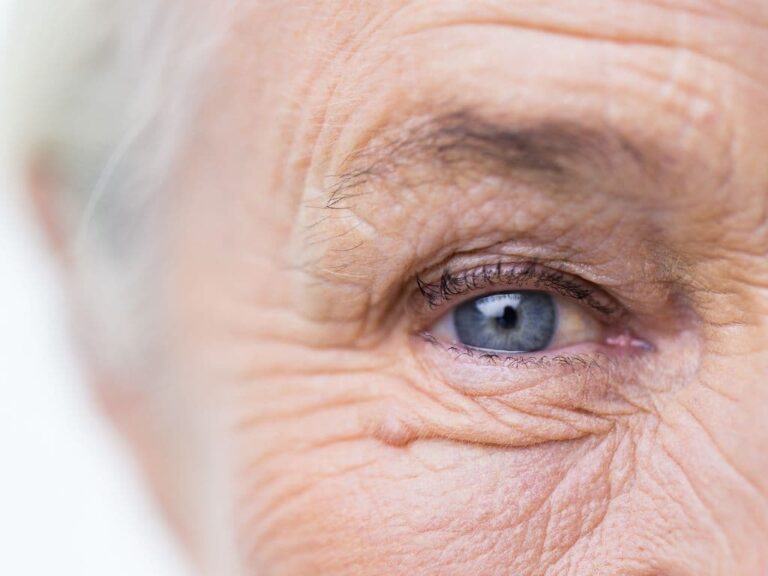What Is a Healthy Weight for 70 Year Old Woman?
As you grow old, your metabolism slows down and can lead to weight gain. So, what is a healthy weight for a 70-year-old woman?
The ideal weight for 70-year-old women varies by height and frame size. Your weight should range anywhere from 102 pounds to 179 pounds depending on your height and body frame. On average, your weight should be 160 pounds.
If you want to know more about healthy weight in 70-year-old women, continue reading this article.
What Is A Healthy Weight For a 70-Year-Old Woman According to Height?
Your ideal body weight changes as per your height. If you are tall, you should weigh more. Here are some details about ideal body weight as per the height.
4′ 10″
If your height is 147 cm, your weight should be between 102 to 131 pounds depending on your frame. Women with small frames should have a weight between 102 and 111 pounds. Women with medium frames should weigh from 109 to 121 pounds. However, if you have a large frame, your weight should be between 118 to 131 pounds.
5′
If your height is 152 cm, your weight should be between 104 to 137 pounds depending on your frame. Women with small frames should have a weight between 104 and 115 pounds. Women with medium frames should weigh from 113 to 126 pounds. However, if you have a large frame, your weight should be between 122 to 137 pounds.
5′ 2″
If your height is 157 cm, your weight should be between 108 to 143 pounds depending on your frame. Women with small frames should have a weight between 108 and 121 pounds. Women with medium frames should weigh from 118 to 132 pounds. However, if you have a large frame, your weight should be between 128 to 143 pounds.
5′ 5″
If your height is 165 cm, your weight should be between 117 to 155 pounds depending on your frame. Women with small frames should have a weight between 117 and 130 pounds. Women with medium frames should weigh from 127 to 141 pounds. However, if you have a large frame, your weight should be between 137 to 155 pounds.
5′ 7″
If your height is 170 cm, your weight should be between 123 to 163 pounds depending on your frame. Women with small frames should have a weight between 123 and 136 pounds. Women with medium frames should weigh from 133 to 147 pounds. However, if you have a large frame, your weight should be between 143 to 163 pounds.
5′ 10″
If your height is 178 cm, your weight should be between 132 to 173 pounds depending on your frame. Women with small frames should have a weight between 132 and 145 pounds. Women with medium frames should weigh from 142 to 156 pounds. However, if you have a large frame, your weight should be between 152 to 173 pounds.
6′ 0″
If your height is 183 cm, your weight should be between 138 to 179 pounds depending on your frame. Women with small frames should have a weight between 138 and 151 pounds. Women with medium frames should weigh from 148 to 162 pounds. However, if you have a large frame, your weight should be between 158 to 179 pounds.
What Is A Good BMI for A 70-Year-Old Woman?
The BMI (Body Mass Index) is a standard for measuring fat in the body. It is used to determine a person’s health risks and helps determine the level of adiposity and lean body mass. It is a measurement that can help you determine your weight and health risks.
To calculate BMI, first, you need to know your height in centimeters. Then, you need to convert it to meters and get a square. Then you need to divide it by your weight. The calculation of BMI is simple. The formula is (kg/m2).
BMI guidelines vary for older people. Typically, a 70-year-old woman should have a BMI of 25 or 27. However, age and health factors should play a large part in determining the proper weight range for a woman of her age.
Maintaining a healthy BMI for seniors is important because it decreases the risk of major health problems. A BMI of 18.5 to 24 is considered healthy in adults; anything over this is considered overweight.
However, according to a meta-analysis conducted by the Prospective Studies Collaboration (PSC), a slightly higher BMI may be beneficial for older adults. Research has also shown that being underweight is associated with a greater risk of death.
How to Maintain a Healthy Weight at 70 Years of Age?
If you’re over 70 years old and wondering how to maintain a healthy weight, you’re not alone. There are several things you can do to maintain your weight. Here are some tips you need to follow.
Stay Hydrated
Dehydration can be a serious problem for older adults. Many individuals have trouble recognizing thirst and may avoid drinking fluids because of incontinence or mobility problems. However, the importance of staying hydrated should never be underestimated. Water can help prevent health problems and keep you feeling great. Drinking eight glasses of water every day is important. It can help to manage your weight.
Eat A Balanced Diet
Eating healthy can help you maintain a healthy weight. A balanced diet should focus on fruits and vegetables, whole grains, and low or fat-free dairy. It should also include lean meat and poultry, eggs, nuts, and beans. The best sources of fats are olive oil, nuts, and seeds. To maintain a healthy weight and improve overall health, a person should consume at least five ounces of protein-rich foods per day.
Be Active
Physical activity is essential for good health. It reduces the risk of chronic diseases and gives you more energy. It also helps you maintain your balance and coordination. Aim to do at least thirty minutes of activity per day. Also, include strength-training exercises to strengthen muscles and bones.
Proper Sleep
Women’s bodies require more sleep than men’s. Insomnia is a common problem for women, and it is also a major risk factor for depression and anxiety. Studies have linked short sleep duration to obesity. So to avoid unnatural weight gain, it is best to get proper sleep.
Take Calcium Supplements
A woman’s calcium intake is important for bone health. The bones of women begin to deteriorate much earlier than those of men. The two age groups both experience bone loss after the age of 70, but women tend to have a longer course of loss. Calcium supplementation is recommended to reduce bone loss. It will also help older women to stay fit and manage weight.
Maintaining a Healthy Weight in Older Age
As we get older, our bodies and metabolisms change, making it harder to maintain a healthy weight. But with planning and effort, you can enjoy good health and avoid obesity-related health risks. Follow these tips:
- Eat nutritious foods like fruits, vegetables, whole grains, and lean proteins. Avoid processed foods and sugary drinks. Limit saturated fats.
- Be physically active daily, aiming for 30 minutes of moderate exercise. Take shorter 10-minute walks if needed. Walking is a great starting activity!
- Use smaller plates and pay attention to hunger cues. Stop eating when full, rather than cleaning your plate. Portion control is key.
With these simple lifestyle tips, you can stay at a healthy weight as you age! Proper diet and regular activity will help you avoid obesity and related illnesses.
The Relationship Between Weight and Health in Seniors
Excess weight can greatly impact senior health. Overweight seniors face increased risks of heart disease, stroke, diabetes, and certain cancers. That’s why finding the right diet is crucial for overweight older adults.
When choosing a senior diet, focus on safety and nutrition. Avoid risky fad or crash diets. Opt for balanced meals with fruits, vegetables, lean protein, and whole grains. Consider activity levels too – less active seniors need fewer calories. Talk to your doctor if you have conditions like hypertension or arthritis before starting a new diet.
The bottom line is that maintaining a healthy weight is vital for senior wellbeing. Shedding extra pounds can help seniors avoid obesity-related illnesses. With the right lifestyle choices, seniors can stay active and enjoy their golden years.
The Ideal Body Weight for a 70-Year-Old Woman
As we age, metabolism slows, making it harder to lose weight. So what is an ideal weight for a 70-year-old woman?
There are many factors that determine a healthy weight, including height, bone density, muscle mass, and health status. But generally, a healthy range is 115 to 155 pounds.
This is just a guideline – your ideal weight may vary based on your specific body composition and health needs. Taller women with more muscle mass may weigh more, while shorter, less muscular women may weigh less.
A good target is around 130 pounds to start. Adjust from there based on how you feel physically and emotionally at that weight. Losing just 5% of body weight can have big health benefits, so focus on gradual progress.
The main thing is to find a weight that supports overall health and mobility in your 70s. Work with your doctor to determine a goal that’s right for you. With patience and commitment, you can achieve a healthy weight.
Factors to Consider When Determining a Healthy Weight for Seniors
Many factors should be considered when determining a healthy weight for seniors. These include height, age, activity level, muscle mass, bone density and overall health status.
As we get older, metabolism slows and muscle mass decreases, often leading to weight gain even without increased calorie intake. Staying active with strength training can help maintain muscle and prevent conditions like arthritis, dementia, heart disease, diabetes and obesity. Regular physical activity is crucial for senior health.
Bone density also impacts healthy senior weight. With age, bones become less dense, increasing osteoporosis risk. Maintaining a healthy weight helps reduce this risk. Being overweight or obese also strains joints, leading to osteoarthritis pain and inflammation.
Excess weight raises seniors’ risk of high blood pressure, high cholesterol, stroke, heart disease, certain cancers like postmenopausal breast cancer, sleep apnea, gallstones, kidney stones, type 2 diabetes and other chronic diseases.
Determining the optimal senior weight requires evaluating all these critical factors. Working with doctors to set realistic goals, staying active and eating nutritious foods can help seniors achieve and maintain weights that support mobility, independence and longevity.
How Excess Weight Impacts Senior Health
As we age, weight gain becomes common due to decreased activity, hormonal changes, and slower metabolism. While some extra weight may not seem concerning, it can significantly impact senior health.
Being overweight increases seniors’ risks of:
- Heart disease – A leading cause of death in seniors. Obesity nearly doubles heart disease risk.
- Stroke – Obesity triples stroke risk. Excess weight strains blood vessels and arteries.
- High blood pressure – Common in aging adults. Extra pounds increase blood pressure by overworking the heart.
- Type 2 diabetes – Carrying extra weight makes seniors much more susceptible to developing this disease later in life. Obesity accounts for 80-85% of type 2 diabetes cases.
- Osteoarthritis – Joint inflammation and stiffness from extra pressure on the joints. Obesity worsens arthritis symptoms.
- Some cancers – Being overweight increases risks of postmenopausal breast cancer, colorectal cancer, uterine cancer, among others.
- Sleep apnea – Excess fat around neck and throat obstructs breathing during sleep.
- Gallstones, fatty liver disease, kidney disease, urinary incontinence, and gastroesophageal reflux disease (GERD).
Losing just 5-10% of body weight can significantly improve senior health and reduce obesity-related conditions. Seniors should work with their doctors to set safe weight loss goals through improved nutrition and managed physical activity.
Ways to Lose Weight Safely as a Senior Citizen
Losing weight can be challenging for seniors as metabolism slows with age. However, there are safe ways seniors can shed excess pounds:
- Reduce calorie intake by eating smaller, more frequent meals. Choose lower-calorie foods like fruits, vegetables, lean protein, whole grains. Limit sugary drinks and snacks.
- Stay active with at least 30 minutes of moderate exercise daily, such as walking or low-impact aerobics. Check with your doctor before starting new exercise routines.
- Incorporate strength training 2 times per week. Lifting weights helps maintain muscle mass, which tends to decline with age. Building muscle boosts metabolism.
- Drink plenty of water. Staying hydrated supports weight loss efforts.
- Get enough sleep. Aim for 7-8 hours per night. Lack of sleep can disrupt metabolism-regulating hormones.
- Manage stress. High stress leads to overeating and weight gain. Practice relaxation techniques.
- Join a senior exercise class or walking group for social motivation.
- Meet with a dietitian or doctor to develop a customized weight loss plan.
With healthy habits and lifestyle changes, seniors can safely lose weight and keep it off. The key is developing sustainable, age-appropriate routines.
Tips for Achieving and Maintaining a Healthy BodyWeight at Any Age
As we age, our metabolism slows down and it becomes more difficult to maintain a healthy body weight. This can be especially challenging for seniors who are also dealing with other health issues that make it difficult to exercise or eat a healthy diet. However, there are some tips that can help overweight seniors achieve and maintain a healthy body weight:
- Get regular moderate exercise to boost metabolism. Brisk walking, biking, water aerobics are great low-impact options.
- Eat lean protein like fish, chicken, tofu, eggs and low-fat dairy at every meal to stay full longer.
- Limit processed foods high in sugar, salt and unhealthy fats. Focus on fresh fruits, vegetables, whole grains.
- Stay hydrated with 8 glasses of water daily. Avoid sugary sodas and juices.
- Reduce portion sizes of meals and snacks. Use smaller plates.
- Get 7-8 hours of sleep nightly. Lack of sleep disrupts metabolism-regulating hormones.
- Manage stress through yoga, meditation or deep breathing. Stress causes overeating.
- Join a senior exercise group for motivation and support.
- Consult a doctor or nutritionist for a customized healthy weight plan.
- Weigh yourself weekly to monitor progress but don’t obsess over the scale.
With commitment to regular activity, proper nutrition and lifestyle changes, you can achieve and maintain a healthy weight, even as metabolism naturally slows with age. Small, sustainable steps make a big difference!
Frequently Asked Questions
-
Why am I only gaining weight in my stomach?
Lifestyle choices can make it possible to gain weight only in the stomach. Your midsection size is a function of the two S’s sugar and stress. Abdominal weight gain can be caused by certain medical conditions or hormonal changes.
-
What is a healthy weight for 70 year old woman?
Average weight at 118-159 pounds (BMI= 18.5-24.9). Overweight at 160-191 pounds (BMI= 25-29.9). Obese at more than 192 pounds (BMI= 30+).
-
What foods do elderly people like to eat?
Healthy eating plans emphasize fruits, vegetables, whole grain, low-fat and fat-free milk. They include lean meats, fish, chicken, eggs, nuts, and trans fats. It doesn’t need to be difficult to eat right.
-
Does pooping more mean your metabolism is faster?
Fast food movement does not necessarily mean that you are a quick metabolism. Healthy metabolism means that you make the most of what food you consume.
-
Are hard-boiled eggs better for you than scrambled?
According to the USDA Nutrition Database hard-boiled eggs have more protein than scrambled eggs. Hard-boiled eggs also contain fewer calories, and are richer in healthy nutrients such as selenium and B-complex vitamins than scrambled eggs.
-
Do you pee out fat?
The complex metabolic pathways your body uses to eliminate fat must be followed. Your body expels fat byproducts through a series of complicated metabolic pathways. When you exhale, carbon dioxide is absorbed through your lungs.
-
Can a 70 year old lose weight?
Weight loss after 70 years is not as easy as losing weight at 30-40 or 50. It is possible, but it can be done. If your health is at stake, it will definitely pay off.
-
What vitamins make u lose weight?
Vitamin B-6, iron, and Niacin: These three powerful nutrients increase your body’s ability to produce L-carnitine, which helps you burn fat. Vitamin C, vitamin B5, vitamin D6, vitamin B12 and vitamin B complex: All these nutrients help to improve your overall health.
-
How much milk should a 70 year old woman drink?
Recommendation for Dairy Intake: Adults over 50 years old should consume three cups daily of dairy. You can get this amount from a variety of dairy products such as yogurt, cheese, and calcium-fortified soybean milk.
-
Are tomatoes good for elderly?
Vitamin C. You can eat foods and beverages rich in vitamin C to help your body absorb iron. Vitamin C is found in fruits, including citrus fruits, vegetables, tomatoes, potatoes, and green veggies.
-
How does fat leave your body?
The complex metabolic pathways your body uses to eliminate fat must be followed. Your body expels fat byproducts through a series of complicated metabolic pathways. When you exhale, carbon dioxide is absorbed through your lungs.
-
Are hard-boiled eggs good for weight loss?
Weight loss: Hardboiled eggs can be a great source of protein. If you are looking to lose weight, they will fill you up with plenty of protein and calories.
-
How many boiled eggs should I eat to lose weight?
The boiled egg diet does not require you to eat only eggs. According to the boiled egg diet, you should eat at least 2 or 3 hard-boiled eggs per week in order to lose weight.
-
Do you poop out fat?
Although we do shed some weight through poop, it is not a good way to get rid of the body fat that can cause serious health problems. Experts believe that the most harmful type of fat is fat around the waist. Visceral fat is this type of fat.
-
What does fat in urine look like?
Chyluria. The condition known as Chyluria occurs when the lymphatic fluid in your intestines leaks into you kidneys. Your urine may appear oily and have milky white hues. It is caused by the presence fats and proteins in your lymph fluid.







